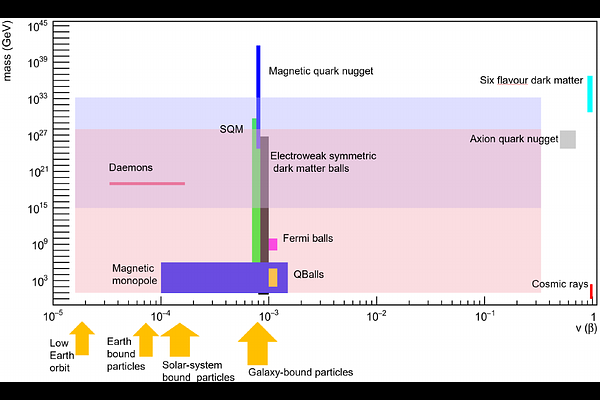Search for Primordial Black Holes from the International Space Station with the SQM-ISS detector

Search for Primordial Black Holes from the International Space Station with the SQM-ISS detector
Francesca Liberatori, Matteo Battisti, Marco Casolino, Laura Marcelli, Zbigniew Plebaniak, Enzo Reali
AbstractIn this paper we discuss the observational capabilities and sensitivity of the SQM-ISS detector to primordial black holes. The SQM-ISS experiment aims to detect slow, non relativistic massive particles within cosmic rays, using a detector on board the International Space Station. The device is designed to recognize the passage of highly penetrating and dense particles in a wide range of mass and charge states such as Strange Quark Matter (SQM). These particles, traveling at speeds typical of gravitationally bound objects in the galaxy - around 250 km/s - are also possible candidates of dark matter. The ability of SQM-ISS to identify penetrating, massive and slow-moving objects allows it also to be sensitive to the detection of primordial black holes. We discuss how black holes, traveling through the detector at velocities compatible with galactic orbital speeds, can be identified based on their interaction signatures.